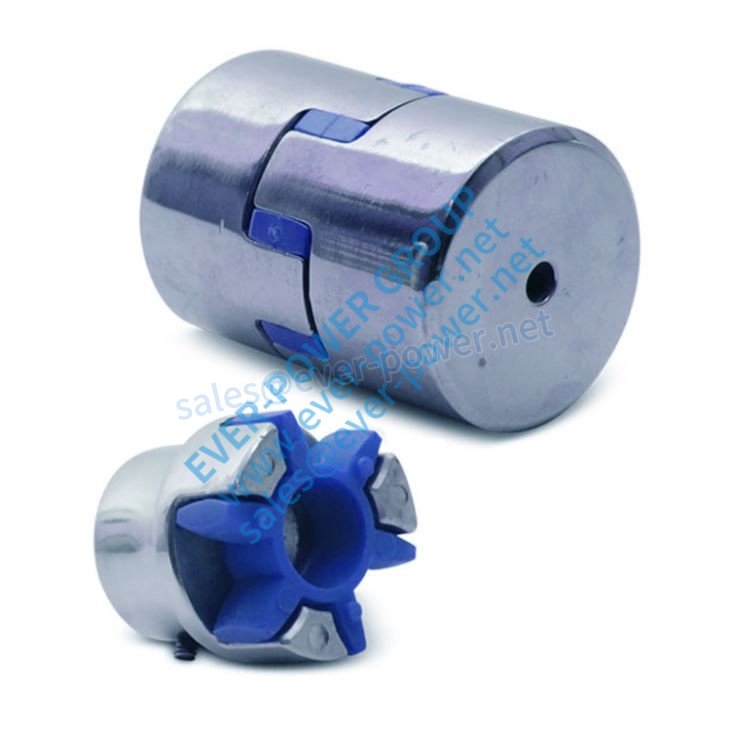Flexible Jaw Coupling
Flexible Jaw Coupling: A Versatile Solution for Power Transmission
A flexible jaw coupling is a crucial component used in power transmission systems to connect two shafts and transmit torque between them. With its unique design and flexible properties, this coupling offers numerous advantages in various industrial applications. Let's explore the features, benefits, and installation guidelines for this essential product.
A Brief History of Flexible Jaw Couplings
The flexible jaw coupling has a rich history, dating back several decades. Originally developed to address the limitations of rigid couplings, this innovative coupling design revolutionized power transmission systems. Over time, manufacturers have improved the materials and manufacturing techniques, leading to more efficient and durable couplings.
Classification and Advantages
Flexible jaw couplings are classified based on their design and materials. Common classifications include elastomeric couplings, metal couplings, and hybrid couplings. Each type offers unique benefits:
- Elastomeric Couplings: These couplings use rubber or polyurethane inserts to provide flexibility and dampen vibrations.
- Metal Couplings: Made from high-grade metals like stainless steel or aluminum, these couplings offer exceptional torque transmission and durability.
- Hybrid Couplings: Combining the advantages of elastomeric and metal couplings, hybrid couplings provide a balance between flexibility and strength.
The advantages of flexible jaw couplings are numerous:
- Highly flexible design accommodates misalignments and reduces vibrations
- Transmits torque efficiently, ensuring smooth power transmission
- Easy installation and maintenance
- Excellent resistance to corrosion and wear
- Compact and lightweight
Materials and Common Applications
Flexible jaw couplings are manufactured using various materials, depending on their intended applications. Common materials include:
- Steel: Provides exceptional strength and durability for heavy-duty applications
- Aluminum: Lightweight and suitable for moderate torque transmission
- Stainless Steel: Offers excellent corrosion resistance for harsh environments
- Polyurethane: Provides flexibility and dampens vibrations
Flexible jaw couplings find applications in a wide range of industries, including:
- Manufacturing
- Packaging
- Material handling
- Automation
- Printing
Installation, Maintenance, and Repair
Installing a flexible jaw coupling requires attention to detail to ensure optimal performance and longevity. Follow these steps for a successful installation:
- Inspect the coupling and shafts for any damage or contaminants
- Clean the shafts and coupling hubs thoroughly
- Align the shafts properly, ensuring concentricity and axial alignment
- Insert the flexible jaw coupling between the shafts
- Tighten the coupling bolts evenly, following the manufacturer's torque specifications
- Perform regular maintenance checks, including lubrication, to prolong the coupling's lifespan
In the event of damage or wear, flexible jaw couplings can be repaired or replaced. It is crucial to consult the manufacturer's guidelines or seek professional assistance to ensure the correct repair process is followed.
Other Products Offered by Our Company
Alongside flexible jaw couplings, our company specializes in supplying a wide range of high-quality plastic gears for various industrial applications. Our product portfolio includes:
- Agricultural gearboxes
- Power output shafts
- Sprockets
- Fluid couplings
- Worm gear reducers
- Gears and racks
- Detachable chains
- Pulleys and pulleys
- Planetary gearboxes
- Timing pulleys
- Bushings, and more
We take pride in offering products of the highest quality, competitive prices, and exceptional customer service. Whether you require standard components or customized solutions based on your specific requirements, we are ready to assist you. Contact us today to explore our products and experience our commitment to excellence.
Q&A
Q1: What are the advantages of flexible jaw couplings over rigid couplings?
A1: Flexible jaw couplings offer improved flexibility, torque transmission, and resistance to vibrations compared to rigid couplings. They also accommodate misalignments, reducing stress on connected machinery.
Q2: Can flexible jaw couplings be used in harsh environments?
A2: Yes, depending on the material chosen, flexible jaw couplings can withstand harsh environments. Stainless steel couplings, for example, offer excellent corrosion resistance.
Q3: How should I install a flexible jaw coupling?
A3: To install a flexible jaw coupling, ensure proper alignment of the shafts, clean the components, and follow the manufacturer's guidelines for tightening torque and lubrication.
Q4: What industries commonly use flexible jaw couplings?
A4: Flexible jaw couplings find applications in industries such as manufacturing, packaging, material handling, automation, and printing, among others.
Q5: Can damaged flexible jaw couplings be repaired?
A5: Depending on the extent of the damage, flexible jaw couplings can be repaired. It is essential to consult the manufacturer's guidelines or seek professional assistance for the appropriate repair process.
About us

We guarantee top-quality products at the best prices in China! Special orders are welcome, and if you’re interested in any of our products, feel free to reach out for more detailed information. We ensure our products are safe, high-quality, and reasonably priced. Please contact us as soon as possible if you’d like to learn more. We’re eager to cooperate with you!
A large portion of our products is exported to Europe and the Americas, with both standard and custom options available. We can manufacture according to your drawings or samples, using standard materials or as per your specific requirements. Choosing us means choosing reliability.

Materials Available
1. Stainless Steel: SS201, SS303, SS304, SS316, SS416, SS420
2. Steel:C45(K1045), C46(K1046),C20
3. Brass:C36000 ( C26800), C37700 ( HPb59), C38500( HPb58), C27200(CuZn37), C28000(CuZn40)
4. Bronze: C51000, C52100, C54400, etc
5. Iron: 1213, 12L14,1215
6. Aluminum: Al6061, Al6063
7.OEM according to your request

Surface Treatment
Annealing, natural canonization, heat treatment, polishing, nickel plating, chrome plating, zinc plating,yellow passivization, gold passivization, satin, Black surface painted etc.
Processing Method
CNC machining, punch,turning, milling, drilling, grinding, broaching, welding and assembly

QC & Certificate
Technicians self-check in production,final-check before package by professional Quality inspector
ISO9001:2008 , ISO14001:2001,ISO/TS 16949:2009
Package & Lead Time
Size: Drawings
Wooden Case/Container and pallet, or as per customized specifications.
15-25days samples. 30-45days offcial order
Port: Shanghai/Ningbo port

Industries We Service



